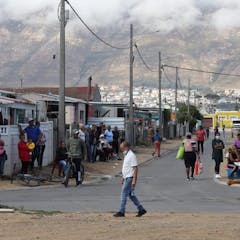
Articles on Service delivery
Displaying 1 - 20 of 26 articles

The 2024 elections may be the tipping point that enables opposition parties to portray themselves as viable contenders in forming a national coalition government.

One interviewee told us: ‘Today our lives are being governed by a bureaucrat who hasn’t seen a Blackfella in their life or haven’t spoken to one.’

A threshold has been crossed, with a pessimistic outlook becoming more dominant than an optimistic one.

Parties must forego ideological rigidity and compromise for the common good, says Mpho Phalatse about making coalitions work.

The rule of law embodies the rallying cry for the fair and democratic exercise of public power, buttressed by law and fundamental rights.

The 2021 local government elections signals widespread disillusionment with representative democracy that only a sea change in service delivery can fix.

The network collectively applied ingenuity to provide essential care and support to vulnerable people.

The 2021 election will define for citizens important aspects of South Africa’s political future. What is the governing ANC’s future, and what was the impact of President Ramaphosa on this election?

Trevor Ngwane, an activist and academic, shows how structures that emerged in the struggle against apartheid continue in democratic South Africa, now in conflict with the ruling ANC.

The collapse of local government in small towns is beginning to affect investment in farming, and the ability of agribusinesses to operate.

The problem in municipalities is not that the wrong people are being chosen. It is that the wrong people are doing the choosing – not only of candidates but of what they do if elected.

After recent elections, South Africa are grappling with what the reasons are for the declining trend in youth participation in the 2019 elections.

The action plan offers no information about budgets, oversight, clear standards for measuring progress or accountability mechanisms.

Two authors unpack the fragility of South Africa’s political parties and why democracy is a lifelong commitment.

South Africa’s dysfuctional municipalities are characterised by very poor, or no delivery, of basic services such as refuse collection.

South Africa’s local governments lack a clear separation of legislative and executive powers.

Inclusive innovation processes could be extremely valuable to low-income and disadvantaged communities in South Africa.

Governing parties and officials need to take note of the frustration being expressed by ordinary South Africans.

Corruption has become one of the biggest concerns for South Africans living in a province that has erupted in violence.

Cycling is a low-cost and non-polluting way to make deliveries in congested cities. Slow cyclists should be recognised as good for the economy and environment, not treated like second-class citizens.
